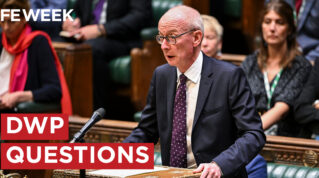The deprioritisation of the UK’s further education and skills sector has sadly been all too evident over recent decades, whichever party has been in power. Spending on adult education and skills has dropped by almost one-third since 2002/03 – though there has been a small but welcome increase over the course of this Parliament.
Labour’s manifesto offers the strongest proposition on skills and apprenticeships, demonstrating a determination to reverse the multi-year drop in uptake and regalvanise England’s creaking technical and vocational skills system.
Their commitment to a more flexible ‘Growth and Skills Levy’ is a business-friendly reform which could see almost half a billion of levy money currently pocketed by the Treasury each year redirected to employer-relevant skills.
Their proposal to formally link the Migration Advisory Committee into the skills system is also a major step forward. For the first time, this will ensure that evidence on occupational shortages has a direct impact on skills policy.
Both commitments directly reflect recommendations made by Policy Exchange in last year’s Reforming the Apprenticeship Levy report. With a foreword by former education secretary Lord Blunkett, it argued for major reforms to reverse the decline in apprenticeships and make better use of available funding.
The Conservatives’ commitment to the Lifelong Learning Entitlement and the Liberal Democrat’s plans for Lifelong Skills Grants are also welcome. This again is a subject Policy Exchange has written about repeatedly.
In both cases, funding must be available for adults to undertake practical, vocational courses such as HGV driving, coding or heat pump installation – not simply more university courses.
Labour’s pledge to ‘guarantee training, an apprenticeship, or help to find work for all 18- to 21-year-olds’ is light on details but intriguing; for it to make an impact, it will need to be backed by cash.
A coherent tertiary funding system would be a big prize indeed
Businesses (particularly SMEs) cannot be expected to provide the volumes of work-based training required without some form of compensation. The pledge to transform FE colleges into ‘specialist Technical Excellence Colleges’ will also only be meaningful if it comes with additional investment.
There are a few further nuggets in the Liberal Democrat manifesto that deserve to be picked up by whoever is in power. Extending Pupil Premium funding to disadvantaged young people aged 16-18 is clearly sensible, as is the proposal to stop charging VAT to reclassified FE Colleges.
The relationship between Further and Higher Education is also under scrutiny in the manifestos. The Conservatives are promising to fund their commitment to create 100,000 new apprentices by closing the worst university courses.
This is a sensible goal, though one might ask why they have not already done so. It is also unclear how any savings will be used to reverse the year-on-year decline in apprenticeships, particularly young apprenticeships.
Though the manifesto does not say so, the Conservatives would also be likely to continue their championing of degree apprentices, which they have successfully grown from a low base to almost 50,000 starts a year.
Labour’s manifesto appears potentially more ambitious here, if slightly mysterious. They have rightly recognised that “the current higher education funding settlement does not work for the taxpayer, universities, staff, or students”.
They have also said that in order to ‘better integrate further and higher education, and ensure high-quality teaching, Labour’s post-16 skills strategy will set out the role for different providers, and how students can move between institutions, as well as strengthening regulation.”
It’s clear that the current debt-fuelled system of uncontrolled HE has cannibalised funding FE college funding without giving the economy the skills it needs.
But do Labour’s pledges signify a more muscular integration of both FE and HE into a tertiary system, with a greater emphasis on providing the training our nation requires? Will they be willing to consider a genuine rebalancing of HE and FE, as Policy Exchange has long recommended? And what do they mean by ‘the role for different providers’?
A coherent tertiary funding system would be a big prize indeed for the party that has the courage to deliver it.
We should be heartened that every manifesto recognises the pivotal importance of further education and apprenticeships. The test will be whether it comes with enough funding to make a difference.
















Your thoughts